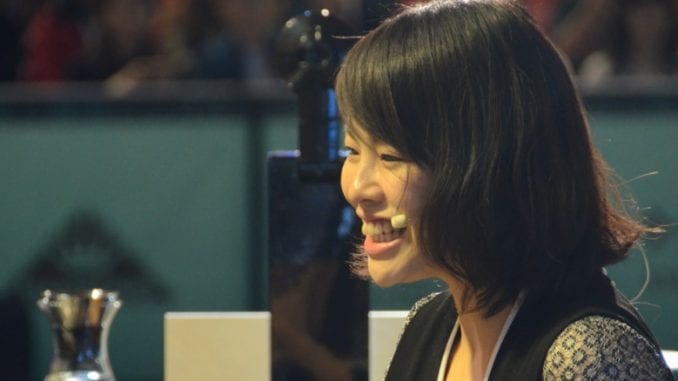
WBC runner-up Miki Suzuki shares her pathway to coffee competition—from watching the competition in Japan in 2007 to the innovative methods she used on stage this year in Seoul in her very last competition.
BY ASHLEY RODRIGUEZ
BARISTA MAGAZINE ONLINE
This interview was edited for clarity.
Photos by Kenneth R. Olson
There was a moment at this year’s World Barista Championship (WBC) that was particularly emotional: As the emcees announced the sixth-, fifth-, and fourth-place finishers, anticipation amongst the crowd grew and grew as Miki Suzuki, the national barista champion of Japan, was still left standing. As they announced the third-place finisher, it became possible that this could be The Year. Miki and Dale Harris, the barista champion of the UK and eventual WBC winner, were the only two left, and it seemed like maybe, just maybe, 2017 would be the year we have a female World Barista Champion.
Although Miki didn’t win, speaking to her unlocked a whole new world of what the history of female competitors at the world stage looks like. Miki has been competing since 2008, and she has announced that this is her last year competing. In her final WBC appearance she pulled out all the stops, showcasing a new “double grind” method and wowing the judges with not just her coffee, but her mastery of particle distribution and surface area. Below, we dive deep with Miki to learn more about her coffee career and her WBC 2017 experience.
Ashley Rodriguez: Can you tell us more about your coffee journey? How did you get started in coffee? What were you doing before?
Miki Suzuki: I used to work at a patisserie. I worked there for three years, but I gave it up because I felt I was not good enough at making cakes, and I had a family problem at that time. I’ve been working in the coffee industry since 2006. I started learning barista skills as a part-time job.
I was so lucky because the World Barista Championship in 2007 was held in Japan. One of the best things was to see WBC in the early stages of my coffee career. I wanted to know and learn all about coffee, so I moved to Maruyama Coffee in 2008. And I started competing at barista competitions. Then I realized the value of barista work and decided to adopt it as my career.
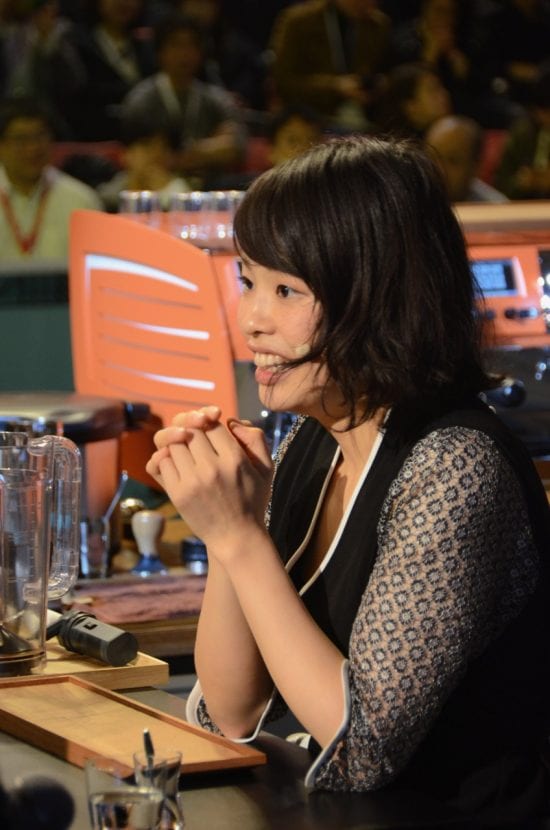
AR: What is your current job? Tell us a little bit about your day-to-day.
MS: I’m in charge of sales planning for Maruyama Coffee, and I still do barista work. I work at our coffee shop as a barista, and also I do the sales planning of coffee and all other coffee-related products.
AR: What is the coffee scene like in Japan? How is it different or special compared to other countries?
MS: I feel like the coffee scene in Japan has a lot of diversity. There are so many styles of coffee shops, like a Kissaten (a tea-drinking shop where customers can also buy coffee), Italian bars, third-wave coffee shops, and local coffee roasters. Each has a different style and different philosophies, but they respect each other. Customers can choose their ideal shop and enjoy coffee anywhere easily.
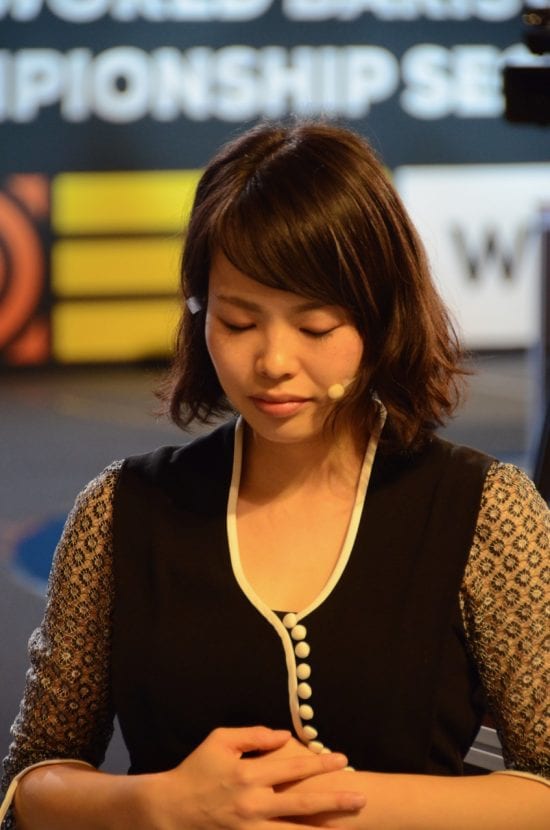
AR: You’ve competed many times—what keeps you motivated? What have you learned from years past that you carried with you to the competition this year?
MS: My goal is to improve coffee and the role of the barista. To achieve my goal would have been impossible without the work of female finalists before me who worked to become the first female World Barista Champion. And Kentaro [Maruyama], Hide [Hidenori Izaki], and Mie [Nakahara] had supported my goal.
There are so many things to learn from past competitions—how to build my team, how to communicate with judges, and what the best approach is for choosing and working with my espresso. Building a good team is especially important for me because there is a limit to how much I can do alone. However, building a strong team allows me to pursue ideas even further.
AR: You did something really unique in your presentation—you ground your coffee twice through two EK43 grinders. Can you tell us a little bit more about how you discovered this process and what it does to coffee?
MS: I introduced my “double grind method” on the WBC stage, and it was a long journey to find this method. For a long time as a barista, I thought espresso extraction was super difficult. Coffee has a lot of flavors, both positive and negative. When I would calibrate my espresso, I’d sometimes get sweetness, but the espresso would taste bitter and dry. When I would dial it in to take off dryness and bring out the floral flavor, I would then lose that sweetness.
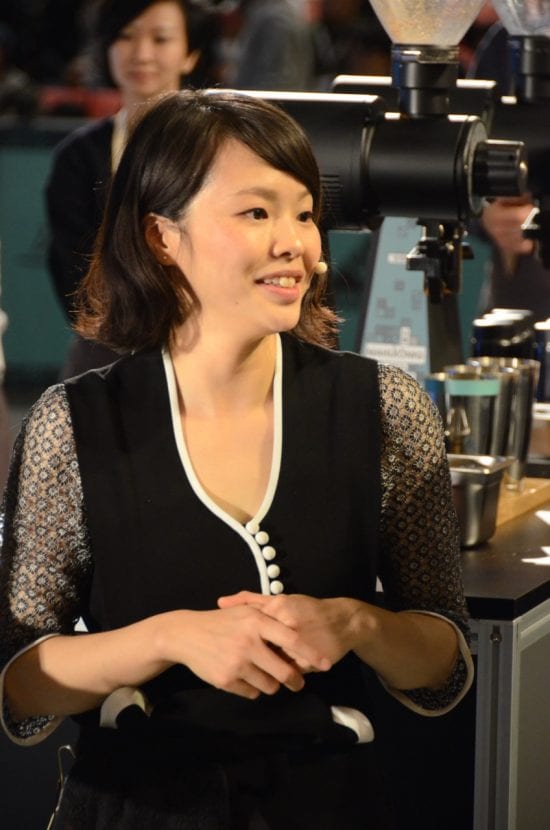
So with this method I focused on how to balance these two—I wanted to bring out all the positive attributes into one cup. I tried a couple of methods searching for the solution. At first I tried to freeze the coffee beans and it did taste much better, but it didn’t fully extract the positive attributes of this coffee. So I tried a scientific approach and did a Scanning Electron Microscopy (SEM) and BET particle distribution test [which can determine the dissolution rate of particles].
And I realized that for my espresso extraction, surface area is important, and to increase surface area, I had to grind my coffee twice. I finished my exploration, and the coffee tasted outstanding.
AR: How did it feel winning second? How did it feel being the only woman in the top six?
MS: I am so happy and satisfied with my second-place finish! I did my best performance in the final round. This was the first time I was perfectly satisfied with my performance in competition since 2008!
There were no female finalists in 2013 and 2014 at WBC. To me, it’s important to have at least some representation every year. I’m thankful to Charlotte [Malaval, the barista champion of France]; I was so impressed with her performance and effort in 2015 and 2016, and I’m happy take the baton from her!
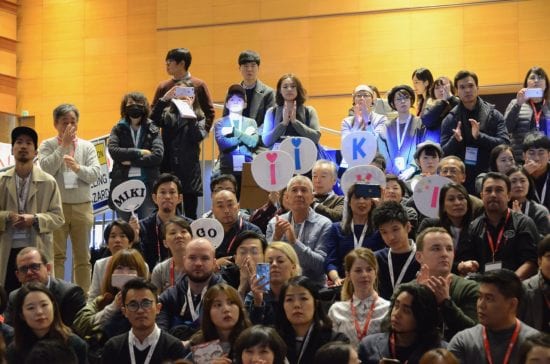
AR: Will you continue to compete? What advice do you have for future competitors?
MS: This is my last barista championship; I’m not competing anymore. I did my best performance at this WBC and I am so satisfied.
For future competitors, competition is a special time in your coffee life. It is a precious experience to focus on one coffee for such a long time. Don’t forget to thank everyone helping and supporting you. Be humble and believe in yourself.

